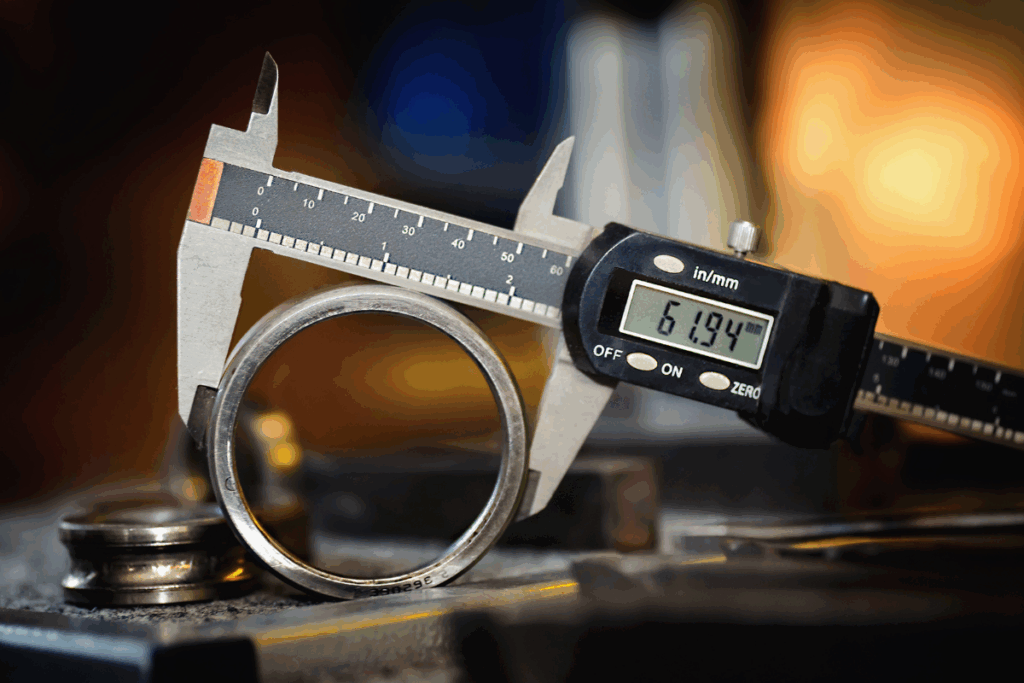As more advanced technology is introduced to the precision machining process, there is a heightened expectation of quickness and accuracy on the part of the production facility and the customer.
Many of the tasks in high-tech processes used in metalworking, such as CNC machining, can be automated to free up workers to perform other tasks that require a human touch. However, the machinery and tools in high-production environments can wear down over time, resulting in products that exceed acceptable tolerances or are otherwise inaccurate, which can delay production as the quality issues are addressed. Without a system in place to check parts as they are produced, you could wind up with hundreds or thousands of parts that are useless to the customer.
Enter metrology – the perfect solution to ensuring consistent product quality, even for large, complex designs with tight tolerances.
What Is Metrology’s Role In Precision Machining?
In the general sense, metrology is the science of measurement. Metrology is critical in precision machining because it enhances quality assurance methods that metalworkers use to calibrate the fabrication equipment. It’s also used to measure the final product and ensure that the precision and accuracy expectations align with the customers’ expectations.
Metrology utilizes dimensional inspection tools, including callipers, micrometres, coordinate measuring machines (CMMs), and non-contact laser scanners, to verify that the final product matches the CAD model. This is especially critical for parts with specific tolerances, so any minor variations in the final product will not impact its fit or performance in the overall assembly.
Fabricators also use metrological instruments to calibrate metalworking machines and tools for projects about to go into production. Taking this step early in the process ensures that the parts and components will be fabricated with the utmost precision and accuracy.
During production, metrology supports automated production lines with sensors and vision systems that provide real-time measurement information to robots and machines, enabling them to make data-driven decisions and ensure product accuracy.
Metrological tools can also assess surface roughness, waviness, and texture during surface finishing. Surface finish influences friction, wear resistance, and corrosion protection, making accurate grinding, polishing, or coating a crucial attribute of the final product.
Metrology is also applied after the fabrication process to confirm that every detail of the product meets the customers’ requirements. If there is a discrepancy between the expectations at the beginning of the process and the end measurements, the tools might need to be readjusted before production can continue.
Read More: The Role Of Tolerances In Precision Machining
The Benefits Of Metrology In Precision Machining
Aside from improving product quality and accuracy, metrology offers precision machine fabricators several additional benefits.
One important benefit is that it helps drive decisions about process optimization and capability. By continuously measuring and analyzing data from measurements, precision machine operators can take proactive steps to minimize variability, thereby supporting lean manufacturing principles.
Furthermore, minimizing the number of rejected parts also reduces the waste of products that must be discarded due to inaccuracies. In some cases, the part can be remachined, but that process wastes time and labour, which can be avoided through metrology.
Metrology also provides manufacturers with the traceable calibration data, inspection reports, and certified testing documentation necessary to prove compliance with all applicable quality programs. This is especially critical for manufactured parts used in automotive and defence applications, where product performance and user safety are paramount.
The measurement data that metrology provides is additionally essential for identifying areas for product improvement, supporting rapid innovation for prototyping, testing, and validating new ideas.
In short, precision machine service providers can count on metrology as more than a set of measurement tools, but rather as part of the foundation of quality, efficiency, and innovation that manufacturers have come to expect.
Read More: Precision Machining’s Role In Automotive Parts Fabrication
Kenona Industries: Using Metrology To Ensure Accuracy And Precision In Every Project
At Kenona, a division of Arrow Automotive, we have three in-house metrology labs each with its own coordinate measuring machine (CMM), allowing our precision machining engineers to ensure that our customers’ product requirements are met with the strictest accuracy, even in the tightest tolerances.
As a leading automotive components supplier, we use tech-based solutions to deliver products our customers can count on for reliability, performance, and quality. With our team in your corner, you’re assured of the best results for your precision machine projects every time. Get in touch with us when you’re ready to build!
Contact Kenona Industries for a quote on your next design and fabrication project
Kenona Industries is a world-class supplier of automotive components to leading OEMs and Tier 1, 2, and 3 manufacturers. Discover what sets us apart by requesting a quote for your next project today!
